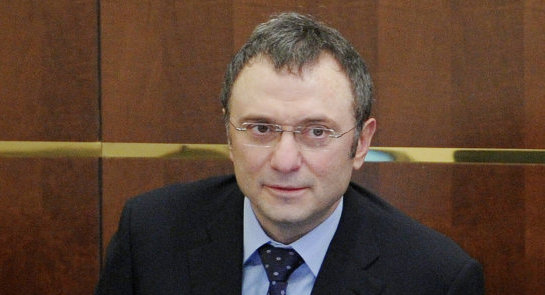MOSCOW, September 2 (RAPSI) - Russian billionaire and Uralkali shareholder Suleyman Kerimov who has been officially charged in the "Baumgertner case," has not gone into hiding, his lawyer Anatoly Kucherena told RIA Novosti on Monday.
“He is not in hiding, he’s out in the open and prepared to give whatever explanations are needed. No problem, “ – the famous defense attorney said. Anatoly Kucherena is head of the Public Chamber Commission for Law Enforcement Reform, and recently legally represented fugitive NSA whistleblower Edward Snowden in his appeal for asylum in Russia.
Kucherena noted that the billionaire former senator’s defense team has virtually no way to appeal any of the Belarusian investigators’ actions, since “there were no subpoenas, no procedural documents of any kind that would implicate him in criminal activity.” The lawyer added that this takes the situation outside the legal field and cements it as a purely political move.
Vladislav Baumgertner, Chief Executive Officer of OAO Uralkali, was detained in Minsk last Monday and charged with abuse of power, according to the Investigative Committee of Belarus. According to the Belarusian authorities, the criminal case was launched as the result of a probe into abuse of power allegations that led to grave damage to the public interests of Belarus, and damages to the company Belarusian Potash.
Kerimov is listed by Forbes magazine as Russia's 20th richest man, with a net worth valued at approximately $7.1 billion as of March 2013. His Forbes profile adds that Kermiov purchased a controlling stake in 2010 in Uralkali.
Potash makes up around 8% of Belarusian exports and Belaruskali is one of its largest industrial enterprises. A major fall in potash prices would therefore deal a severe blow to Minsk, which has suffered from major falls in the Belarusian ruble in recent years.
Uralkali has long coveted Belaruskali and was in negotiations last year to buy a stake in the company, but talks fell apart after Belarusian President Alexander Lukashenko said he would not sell a controlling stake in the state-owned firm.



